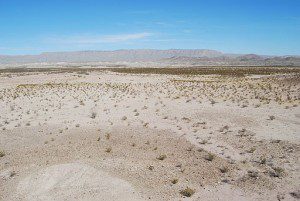 “April is the cruelest month.” That snatch of poetry always comes to mind when the calendar turns to April Fool’s Day. But surely April isn’t the cruelest month! April showers bring May flowers! April marks the time when Winter is over and Spring has sprung! So why would the poet T. S. Eliot say that April is the cruelest month?
“April is the cruelest month.” That snatch of poetry always comes to mind when the calendar turns to April Fool’s Day. But surely April isn’t the cruelest month! April showers bring May flowers! April marks the time when Winter is over and Spring has sprung! So why would the poet T. S. Eliot say that April is the cruelest month?
Well, that is the first line of a long, difficult poem called “The Waste Land.” It plays off of the legend of the Holy Grail. When the chalice Christ used for the first Holy Communion was lost, due to a terrible sacrilege, the whole country turned into a waste land. Vegetation died, turning the land to desert. Nothing would grow. Animals stopped giving birth. Life became barren, sterile, dry.
Eliot was using that legend to explore what he saw as the spiritual wasteland of modern times. Here too we have lost what is sacred. He describes our emotional wasteland. He writes about the sterility and lifelessness of the Waste Land in terms of uncommunicative marriages; a bored typist and a house-agent clerk who engage in unloving, dehumanizing sex; a woman who casually talks about her abortion.
April is the cruelest month, to people like that, because they don’t want the new life that Spring heralds. They are happy to be spiritually dead. They don’t want to be born again. They feel threatened by the rain that could bring new life to the desert of their lives. They think the prospect of new life is cruel.
In the course of the poem, amidst many other patterns of imagery, we find the motif of “death by water.” At the end of the poem, a quester is walking in the desert towards the ruined grail chapel. He has the sense that someone is walking beside him. (Eliot’s footnote identifies the allusion as pointing to Christ on the road to Emmaus.) At the very end of the poem, it is thundering and starting to rain. Soon after he published the poem, T. S. Eliot was baptized. Water brought life to Eliot’s own personal wasteland.
The most acclaimed, innovative, and radical poet of the modernist movement, who knew the waste land in his own heart, converted to Christianity.
The Waste Land
by T. S. Eliot
I. THE BURIAL OF THE DEAD
APRIL is the cruellest month, breeding |
|
| Lilacs out of the dead land, mixing |
|
| Memory and desire, stirring |
|
| Dull roots with spring rain. |
|
| Winter kept us warm, covering |
5 |
| Earth in forgetful snow, feeding |
|
| A little life with dried tubers. . . . |
|
| Summer surprised us, coming over the Starnbergersee |
|
| With a shower of rain; we stopped in the colonnade, |
|
| And went on in sunlight, into the Hofgarten, |
10 |
| And drank coffee, and talked for an hour. |
|
| Bin gar keine Russin, stamm’ aus Litauen, echt deutsch. |
|
| And when we were children, staying at the archduke’s, |
|
| My cousin’s, he took me out on a sled, |
|
| And I was frightened. He said, Marie, |
15 |
| Marie, hold on tight. And down we went. |
|
| In the mountains, there you feel free. |
|
| I read, much of the night, and go south in the winter. |
|
| |
| What are the roots that clutch, what branches grow |
|
| Out of this stony rubbish? Son of man, |
20 |
| You cannot say, or guess, for you know only |
|
| A heap of broken images, where the sun beats, |
|
| And the dead tree gives no shelter, the cricket no relief, |
|
| And the dry stone no sound of water. Only |
|
| There is shadow under this red rock, |
25 |
| (Come in under the shadow of this red rock), |
|
| And I will show you something different from either |
|
| Your shadow at morning striding behind you |
|
| Or your shadow at evening rising to meet you; |
|
| I will show you fear in a handful of dust. |
[Keep reading. . .]
Photo of the desert at Big Bend National Park by Martin Proll. Houston, Texas. (Own work) [Public domain], via Wikimedia Commons
 “April is the cruelest month.” That snatch of poetry always comes to mind when the calendar turns to April Fool’s Day. But surely April isn’t the cruelest month! April showers bring May flowers! April marks the time when Winter is over and Spring has sprung! So why would the poet T. S. Eliot say that April is the cruelest month?
“April is the cruelest month.” That snatch of poetry always comes to mind when the calendar turns to April Fool’s Day. But surely April isn’t the cruelest month! April showers bring May flowers! April marks the time when Winter is over and Spring has sprung! So why would the poet T. S. Eliot say that April is the cruelest month?










